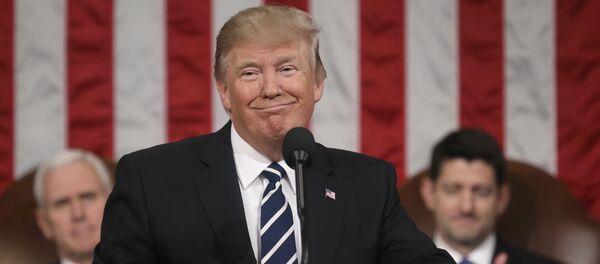Brian Becker and John Kiriakou of Radio Sputnik's Loud & Clear spoke to Daniel Lazare, a freelance progressive journalist and author, and Christopher Black, an international criminal lawyer based out of Toronto, Canada.
"The Democrats commissioned the Christopher Steele dossier," said Lazare. "It was an immense effort to dig up whatever they could find on Trump. It doesn't seem to hold much water as far as I can tell, but Christopher Steele pulled every string he could in order to find some kind of scandal that could be used to discredit Trump."
Opposition research is a day-to-day part of Washington politics — in fact, the earliest version of the Steele dossier was commissioned by Republicans who wanted to prevent Trump from becoming their party's candidate for president. Steele was brought on later, after Trump won the Republican primary and the dossier's benefactors became the Hillary Clinton presidential campaign and the Democratic National Committee.
"The Christopher Steele document was very obviously suspiciously arranged and came to nothing," said Black. "As we see with this testimony, there's nothing there in the entire investigation about Russian influence of the election. and the journalist said the Democrats tried to do the same thing. It looks like just a witch hunt, and they're investigating things that never happened, and they know it never happened. It's just part of the entire effort to isolate Russia and build up venom in the population against Russia for some other purpose."
"I agree that Democrats and Republicans are always looking for dirt on one another," Lazare added. "But when the FBI offered to pay Christopher Steele after the election, it was a very different thing. What was the FBI doing, digging up dirt on the president-elect? That to me is really special."
Becker then read a quote from Foreign Affairs magazine regarding the retaliatory measure taken by the Russian government against the US Justice Department's insistence that Moscow-owned media outlet RT register as a foreign agent. Moscow passed their own equivalent of the measure, declaring Washington-owned outlets such as Voice of America and Radio Free Europe foreign agents as well.
"Regardless of what RT or the Russian government may say, the Russian media law is in no way a proportionate response to RT's registration under [the foreign agents registration act]," the Foreign Affairs article read. "The United States legislation does not limit the activities of RT. Rather, it is a disclosure statute that requires the registered agent to reveal income from the foreign principal and allow the DOJ to inspect its business records when asked. RT is still free to continue publishing and disseminating content in the United States."
But RT has now lost their Capitol Hill credentials and may lose their TV deal as well, Becker noted, sinking the notion that RT has not been harmed as a journalistic outlet by being forced to register.
"Any journalist now is now much more hesitant about going on an RT program," said Lazare. "Of course this is an attempt to ostracize RT, to shut them down, to bring a veil over them."
Black concurred. "It seems to me that the entire effort is to label RT and Sputnik as propaganda organs, when in fact they're responding to propaganda from Voice of America, Radio Free Europe, and so on…. RT and Sputnik are not propaganda organs like the [Canadian Broadcasting Company] or the [British Broadcasting Company] which are state-owned. They are they are news outlets which are trying to present the real news to the world public, to counter the propaganda being put out by US news agencies.





